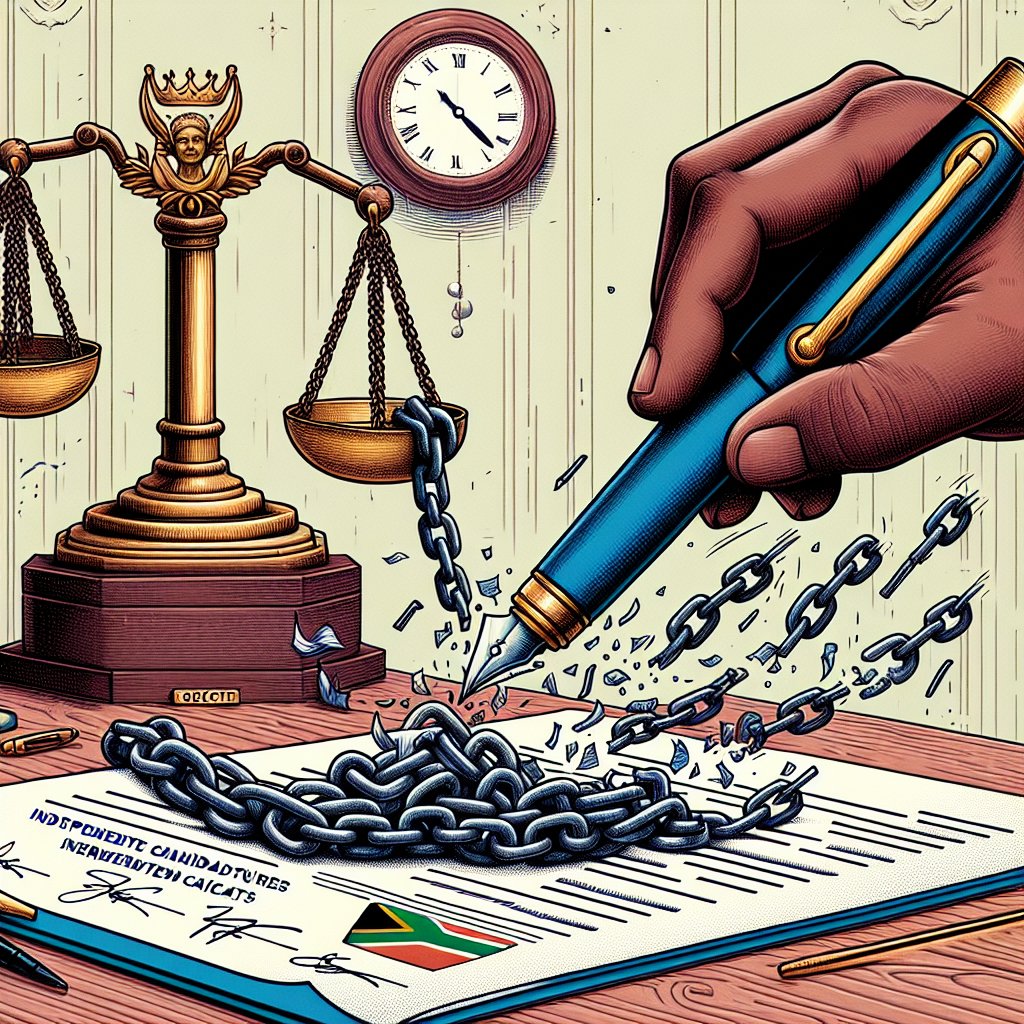Content created by AI
Constitutional Court Rethinks Electoral Requirements: A Triumph for Independent Candidates
South Africa's democracy has just taken a bold step forward. The country's highest court, the Constitutional Court, has handed down a judgment that marks a pivotal change for the electoral landscape. By slashing the number of signatures required for independent candidates to run in elections from the sizeable 15% of regional inhabitants to a mere 1,000, the court has flung open the doors to a more inclusive and fair political contest as the nation steels itself for the 2024 general elections.
Previously, aspiring independent candidates and burgeoning political parties faced a colossal hurdle. Under the Electoral Amendment Act, they had to collect signatures amounting to 15% of the population in the constituency they aimed to serve. This meant their campaigns could falter before even starting, as they struggled to amass between 10,000 and 14,000 endorsements—a task both daunting and draining.
The majority ruling, guided by Justice Jody Kollapen, determined such a requirement as an unwarranted encumbrance. Even as South Africa embraced independent candidates through legislative reforms, Justice Kollapen voiced concern that setting such high entry barriers could render these gains "hollow". He charged the quota system as both excessive and lacking in historical precedent. His skepticism—"Why a signature requirement now when one was never needed before?"—underlined the court's stance on removing impediments previously insurmountable for many.
The court's judgment was not unanimous. A minority opinion penned by Chief Justice Raymond Zondo suggested rebuffing the challenge brought forward by Mmusi Maimane and One South Africa Movement as non-infringing upon rights. However, the dissent was overshadowed as the court largely favored a democratic facilitation over strict gatekeeping.
On a separate challenge, the court stood firm on the existing seat allocation system within the National Assembly, where the Independent Candidate Association of South Africa faced defeat. The association's bid to reconfigure the seat splits from 200/200 to 350/50 in favor of independents was deemed constitutionally sound and grounded in proportional representation principles by Justice Nonkosi Mhlantla.
Handing down their decision warned authorities—time waits for no one, especially not elections. With concerns of inadequate time for election preparations raised by both the Independent Electoral Commission (IEC) and independent candidate Zachie Achmat, the court was pressed into action to deliver the verdict.
This judgment signifies not just a win for independent candidates but an evolving symbol of demography-owned democracy in South Africa. As we edge closer to 2024, the political stage is set for a more diverse set of voices, representing a cross-section of the South African public, uncompromised by onerous bureaucratic barriers.










